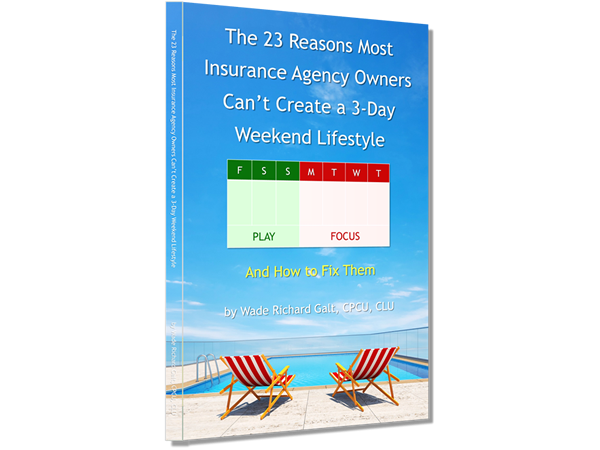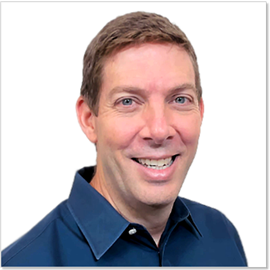29. Sales Mastery Levels
Go beyond merely selling… or selling competently… and learn how to connect with your prospects in their preferred way of learning, interacting, and buying.
Quick Summary
- The ability to sell is crucial for entrepreneurs and professionals to impact people, generate income, and support their lifestyle.
- Many individuals face challenges in selling due to lack of belief in the product, fear of rejection, or insufficient confidence in themselves.
- Salespeople often start by following a provided framework and gradually develop their own unique sales style through learning from various mentors.
- Understanding and adapting to the preferred communication styles of customers can significantly enhance sales success and positively impact their lives.
- Continuous growth, learning, and adaptation are essential for sales professionals to effectively connect with customers, offer valuable products and services, and achieve financial success while enjoying personal fulfillment.
Full (Edited) Transcript
For so many entrepreneurs and professionals, the ability to sell is critical to our ability to impact people to get them to purchase the services, the products we offer, and to make an income for ourselves, to pay for our bills, our family, our lifestyle, and all these different things. When I talk with most professionals about sales, they'll usually tell me there's two types of people.
There's people that can sell and people that can't. Now there's a lot of truth to that. There are many people that simply can't or won't open their mouth. And then there's people that will, and they seem very confident, but there's more going on there. I'm gonna explore those stages with you here. The first stage of selling for a lot of people is actually where you're not yet selling.
A lot of people here are not yet comfortable to open their mouth. It's not that they don't know how to say the words. It really is more of a won't thing. So for example, they might not believe in the product. They might feel that they don't know enough about the product. And so if they get asked questions, they're going to feel stupid.
They might not be open to receiving the rejection that comes from the offering something and a person telling them no. So there's a lot of reasons why a person can't or won't sell. Usually it has to do something between education about what they're offering, their conviction about it. And that's where the concept or the saying comes from of if you believed you had the cure for cancer and you were selling it, how passionate would you be about it?
So, for a lot of people, the obstacle here is belief, confidence, very often in what they're offering, and then also sometimes confidence in themselves. The next stage is where a person starts to sell. Very often they're given a framework by somebody. So someone might say, here's what you say. Here's how you say this.
Here's what we offer. Here's why it's good for people. These are the features, the benefits. And if you can tell people about this, a certain percentage are going to say, yes, usually let's say about 10 percent are going to engage. And that's great. And we're going to help them. And you're going to make some money and they're going to get delivered some product or service that's going to make their life better.
And so that's the beginning stage for a salesperson. Now, some people think that that's all there is to sales, but that's kind of like a first level. The second level is when you start to study multiple mentors, multiple teachers, multiple professionals, and you start learning their styles. And you take little pieces that work for you.
And very often you'll come up with your own sales style and you say, well, here's how I sell. And there's often a lot of pride involved in this. Kind of like the difference between, let's say a young child and a kid that really feels like they're a mature teenager and they're developing their own style and say, this is how I sell.
I get certain results. This way that I'm doing it is better than the original way I was taught. This is more advanced. It's more comprehensive. I really feel like I'm great at sales. Then there's a fourth way. It's where I start to realize that my ideal prospect, my customer, doesn't exactly learn or want to be educated, informed, or sold to the way I do.
Maybe only one out of four of the people I talk to likes my style. Similarly, if I were a teacher and I knew that there were, let's say, four different ways to educate people, four styles, I'd want to make sure I learned all those four styles so that none of my students were left out. Well, as a salesperson, if I'm really hung up and too focused on my way of selling, I will miss out on the customers, a lot of them.
So maybe some prefer a conversation. Maybe some prefer it to be very quick with social proof. Maybe some prefer that you tell a story. Maybe some prefer facts, some prefer visual aids, depending on the profession. There may be multiple ways you do this, but overall, I start to realize that if I can reach them their way, I'm going to have a better chance of success and more likely to reach them so that they can get the product or service that positively transforms their life.
So where are you in your journey? Are you still feeling uncomfortable with selling and hesitant to open your mouth? Whether it's somebody else's product or you're maybe having doubt in your own product? Are you at the stage where you're using somebody else's framework and you're starting to see success and you're starting to make some sales happen?
Have you developed your own style where you're starting to learn from other mentors and cultivate your own way of doing things and create greater success for you? Or have you got to that stage where now you're really looking at the styles of the people you serve and seeing how you can help them. If you'd like, go ahead and put in the comment section, what stage you're at and what's the next thing you want to be learning.
One of the things I like to focus on is to make sure that I'm always growing as a professional, but also to be clear that what I think I know, that I actually know. And so in the content I share on the podcast, in the work that we're going to do in the courses, the coaching programs, I've, we like to make sure we look at insurance sales from multiple angles.
Some customers like to just be pivoted to. They just want really quickly, you're talking about their auto or their home insurance, and they just want you to really quickly say, Hey, well, what about that? Would you like fries with your shake? In essence, sort of an approach. Some customers want a full blown review.
They want to sit down with you. They want to talk with you about their goals and their dreams and how they can make those things happen. Some don't want any help at all. Some want you to anticipate what it is and just tell them what they should be doing. And they'll just make a yes or no decision. I hope you find this helpful.
If you have any questions or suggestions, please put them in the comment section. Otherwise, as always, look forward to helping you impact more people with your conversations, with your education, with the products and services you offer that help them and make more money in less time. Do what you do best so you can fully enjoy your family, your friends, your freedom, and your life.
Get the eBook

Start Working Less & Making More
At least 5 of these obstacles are hurting your Production, and Income, Freedom. Start fixing them now!
We won't send spam you. Unsubscribe at any time.
eBook will be emailed to you.Schedule a Strategy Session
We’ll Discuss Your
- Biggest Goal - If you or your agency could only achieve 1 thing in the next 12 months, what would it be?
- Value of Biggest Goal - What's it worth to you (money, free time and / or happiness) to achieve this goal?
- Biggest Frustration - If you could "fix" 1 thing in your agency in the next 12 months, what would it be?
- Frustration Cost - What is your biggest frustration COSTING you (money, free time and / or happiness)?
Then, We’ll Discuss the Plan & Expected Results
- Which goal(s) are likely to be achieved and how long it usually takes, based on our experience.
- The best way to help you achieve your goals, based on your style and time available to implement.
- Your anticipated time investments & money investments.
- What guarantees we can make









